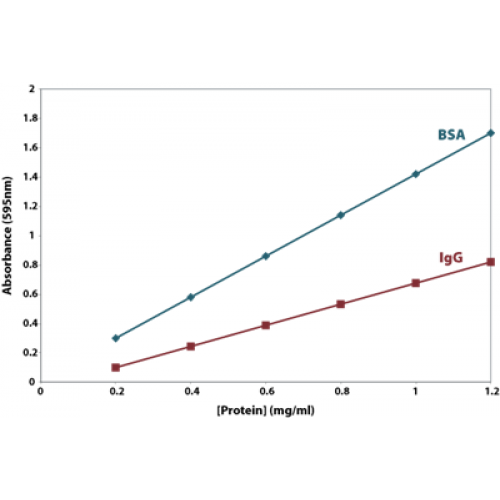Question:
What protein extraction and isolation accessories are used for sample preparation?
The Protein Man Says:
There are a number of accessories that can help facilitate the proper extraction and isolation of your protein of interest. These include various enzyme preparations, protease and phosphatase inhibitor cocktails, detergents and grinding resins. Here is how these accessories can aid you in your research
 Grinding Resin
Grinding Resin
Using a highly efficient grinding resin in extracting proteins and DNA allows for the optimal grinding of biological samples. Since the resin is a neutral abrasive material, it facilitates the efficient disruption of small tissues, cells, nuclei and other cellular organelles without binding the proteins or nucleic acids.
Detergents
Detergents work by solubilizing proteins or by releasing them from lipid membranes. However, since most commercial grade detergents contain elevated levels of sulfhydryl oxidizing agents, peroxides, salts and carbonyl compounds, the proteins that are isolated with these detergents are highly susceptible to contaminant. To prevent this from happening, you need to use proteomic grade detergent solutions for your research.
Enzyme Preparations
To make your task a lot simpler and to prevent unnecessary loss of materials, you can use a number of ready-to-use enzyme preparations to suit your specific purpose. Here are some of them:
-
Zymolase – a lytic enzyme that is ideally used for the digestion of yeast and fungal cell walls.
-
Lysozyme – can be used for the lysis of bacterial cell walls. Stabilized solutions of lysozyme are fully compatible with the protein extraction and lysis buffer (PE LB) system and can be used to digest bacterial cell walls and nucleic acids.
-
Nuclease –Enzymes which can be used to facilitate complete digestion of nucleic acids removing them from protein solutions. You can use a general nuclease or :
-
Ribonucleases (RNase) – a type of nuclease that facilitates the digestion of RNA into smaller components (endoribonucleases and exoribonucleases).
-
Deoxyribonucleases (DNase) – an enzyme that cleaves the phosphodiester linkages in the DNA backbone to facilitate the complete digestion of DNA.
-
Phosphatase Inhibitor Cocktails
Phosphatase inhibitors basically preserve the phosphorylation (activation) state of proteins during and after cell lysis or tissue protein extraction by protecting them from the action of serine and threonine phosphatases, protein tyrosine phosphatases (PTPs) and dual-specificity phosphatases that are released during cells lysis.
Phosphatase inhibitor cocktails usually contain a combination of sodium fluoride, sodium molybdate, sodium orthovanadate, sodium pyrophosphate, sodium tartrate, β-glycerophosphate, imidazole, cantharidin, p-bromotetramisole oxalate and calyculin.
Protease Inhibitor Cocktails
Protease inhibitors are a class of molecules that inhibit the function of most proteases (serine, cysteine, trypsin, aspartic, calpain, metalloproteases and aminopeptidases) and are ideally used to protect the integrity of your protein of interest during protein extraction and purification, storage and other subsequent downstream applications.
Protease inhibitors are available both as individual protease inhibitors and as cocktails. Some of the most widely used individual protease inhibitors include AEBSF, ALLN, Aprotinin, Bestatin, Leupeptin, Pepstatin and PMSF, to name a few.
With regards to protease inhibitor cocktails, there are species-specific cocktails and there are those that exhibit wide species specificity. In addition, there are protease inhibitor cocktails that use an alternative to EDTA as an inhibitor of metalloproteases making it compatible with 2D electrophoresis.
Protease inhibitor cocktails are often used in the laboratory since they are more convenient, flexible and economical to use.
G-BioSciences offers a protease inhibitor cocktail that guarantees >95% inhibition. Compare it with the product that you are currently using and see the difference.







